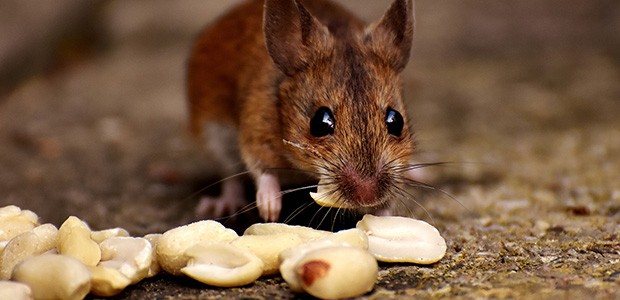As a loving pet mouse owner, you naturally want to ensure your tiny companion enjoys a healthy and fulfilling life. While cartoons might depict mice feasting on cheese, the reality of a pet mouse’s diet is much more nuanced. So, what can pet mice eat to thrive? Let’s delve into the world of mouse nutrition and discover the ideal diet for your furry friend.
Understanding the Ideal Diet for Pet Mice
Mice are omnivores, meaning they eat both plants and animals. In their natural habitat, wild mice forage for grains, seeds, fruits, and even insects. To keep your pet mouse healthy and happy, their diet should closely mimic this natural variety. A balanced diet for pet mice should include:
- Commercial Mouse Food: This should form the cornerstone of their diet. High-quality commercial mouse food is specifically formulated to provide the essential vitamins and minerals mice need. Choose a reputable brand that offers a balanced mix of ingredients.
- Fresh Vegetables: Introducing fresh vegetables adds vital nutrients and fiber to your mouse’s diet. Good options include carrots, broccoli, peas, and leafy greens.
- Fresh Fruit: Fruits offer natural sugars and additional vitamins. Offer fruits like apples, pears, and bananas in moderation as treats due to their sugar content.
- Protein Sources: Mice benefit from protein for energy and muscle development. Supplement their diet with small amounts of protein sources like cooked lean meats, mealworms, crickets, or even cooked eggs. Legumes such as chickpeas and beans can also be offered.
- Fresh Water: Clean, fresh water must be available at all times. Use a water bottle or a shallow dish, ensuring it’s cleaned and refilled daily.
It’s also worth noting a peculiar aspect of mouse digestion: coprophagy. Mice, like rabbits, eat their own droppings. This is a natural process where they re-ingest partially digested food to extract additional nutrients. This behavior is normal and nothing to be concerned about.
Feeding Guidelines and Portion Control
While it might be tempting to fill your mouse’s food bowl to the brim, moderation is key. Overfeeding can lead to obesity and health problems in mice. A good approach is to provide a small handful of food each day. Monitor their food intake and remove any uneaten fresh fruits or vegetables before they spoil, usually within 24 hours. Offer fresh fruits and veggies daily as a supplement to their main diet.
To add enrichment and prevent food aggression, try scattering your mouse’s food around their cage. This encourages natural foraging behaviors and provides mental stimulation. Scattering food is particularly beneficial if you have multiple mice sharing a habitat, as it reduces competition for food resources.
 Two pet mice eating seeds from a hand inside their enclosure.
Two pet mice eating seeds from a hand inside their enclosure.
Safe and Healthy Fruits and Vegetables for Pet Mice
A wide variety of fruits, vegetables, and herbs are safe and beneficial for pet mice. Introducing different options can keep their diet interesting and ensure they receive a broad spectrum of nutrients. Consider offering these options in small quantities:
- Fruits: Apples, pears, melon, bananas (in moderation due to sugar), berries (strawberries, blueberries).
- Vegetables: Carrots, celery, peas, green beans, broccoli, cabbage, sprouts, cucumber, bell peppers.
- Herbs: Parsley, basil, coriander (cilantro), mint (in small amounts).
Remember to wash all fresh produce thoroughly before offering it to your mice to remove any potential pesticides or contaminants. Variety is key to a healthy and stimulating diet, so rotate the fruits and vegetables you offer. If you have any concerns or questions about specific fruits or vegetables, consulting with a veterinarian is always recommended.
Foods to Absolutely Avoid Feeding Your Pet Mouse
Certain foods are harmful and should never be given to pet mice. It’s crucial to be aware of these dietary dangers to protect your mouse’s health. Avoid feeding your mice:
- Citrus Fruits: Acidic fruits like lemons, limes, oranges, and grapefruits can upset their digestive system.
- High-Fat Foods: Foods high in fat, such as bacon, chocolate, butter, cheese (despite the stereotype!), and baked goods, can lead to obesity and related health problems.
- Sugary and Salty Foods: Processed human foods, sweets, and salty snacks are unhealthy and should be avoided.
- Raw Beans and Legumes: Certain raw beans and legumes can be toxic to mice. Cooked beans and legumes are generally safe in moderation.
- Sticky Foods: Peanut butter and other sticky foods can be a choking hazard.
- Onions and Garlic: These vegetables, and other members of the allium family (like chives and leeks), can be toxic to mice.
- Alcohol and Caffeine: These substances are harmful and should never be given to mice.
When in doubt about the safety of a particular food, it’s always best to err on the side of caution and avoid offering it. If you’re ever unsure whether a food is safe for your mouse, consult with your veterinarian before introducing it to their diet.
The Importance of Gnawing for Dental Health
Mice have teeth that constantly grow throughout their lives. In the wild, they naturally wear down their teeth by gnawing on various materials. Providing suitable gnawing objects in their cage is essential for maintaining their dental health and preventing overgrown teeth, which can cause serious health issues. Offer your pet mice safe and appropriate items to gnaw on, such as:
- Hay Cubes: Timothy hay or other safe hay compressed into cubes.
- Cardboard: Plain cardboard boxes or tubes (avoid those with inks or dyes).
- Seagrass Mats: These provide a natural and safe gnawing surface.
- Untreated Softwoods: Blocks of softwood like applewood or willow (ensure they are untreated and free of chemicals or paint).
- Commercial Gnawing Toys: Pet stores offer a variety of safe gnawing toys specifically designed for small animals.
Avoid providing hard plastics or treated woods, as these can be harmful. Regularly inspect your mouse’s teeth for signs of overgrowth and consult a vet if you notice any dental problems.
Seeking Expert Advice on Your Mouse’s Diet
Ensuring your pet mouse receives the correct nutrition is vital for their overall well-being and longevity. If you have any concerns about your mouse’s diet, or if you observe any changes in their eating habits or health, don’t hesitate to seek professional veterinary advice. A veterinarian experienced in small animal care can provide personalized recommendations for your mouse’s specific needs and address any dietary questions you may have.
For further assistance and guidance on pet mouse care, you can locate a veterinarian near you through resources like the Find a Vet page or consult with a vet online using Online Vets. Providing the right diet is a cornerstone of responsible pet mouse ownership, ensuring your little friend enjoys a happy and healthy life.
